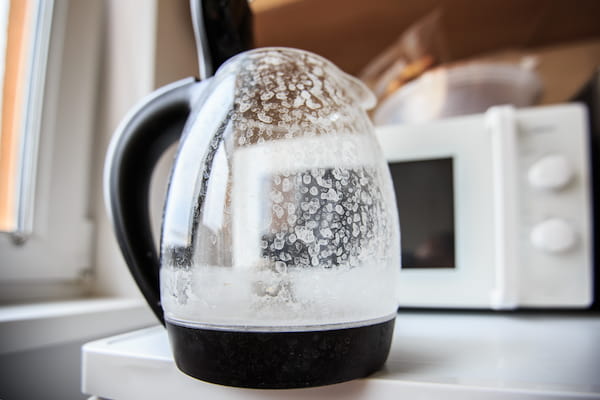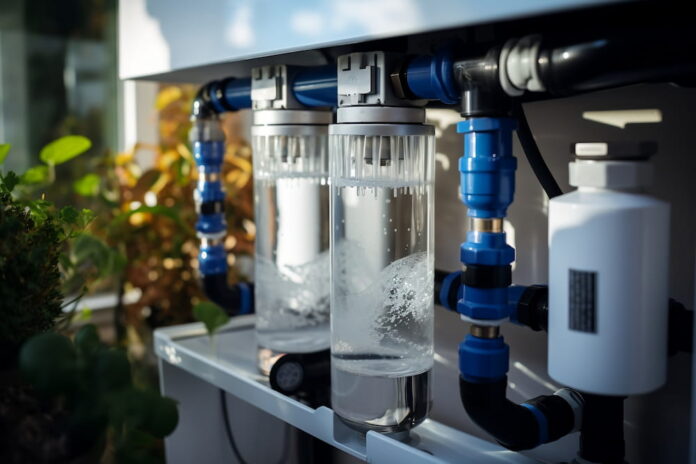Water is essential for life, and its quality is equally crucial for maintaining good health. Among the various characteristics that define water quality, hardness is a significant factor. Hard water contains excessive levels of minerals, including magnesium and calcium. While these minerals don’t harm health and are, in fact, beneficial in moderate amounts, too much consumption of hard water can have implications for both health and daily living.
Read on to learn the impact of hard water on health.
Understanding Hard Water
Hard water is characterized by its elevated mineral content, predominantly calcium and magnesium, which it naturally absorbs as it filters through limestone and chalk deposits. These minerals are essential for numerous bodily functions, including bone health, nerve function, and muscle contraction. However, when present in excess, they can cause several problems. Some of the inconveniences and health issues related to excessive mineral levels in hard water include:
– Increased risk of kidney stone formation
– Potential for developing cardiovascular diseases
– Interference with the absorption of other essential minerals
– Scaling and clogging in plumbing which can affect water flow and appliance efficiency
To mitigate these effects, solutions like Crystal Water can offer water softening systems that transform hard water into soft water. This can help enhance its quality for consumption and usage.
Ways Hard Water Can Affect Your Health
Hard water, rich in minerals like calcium and magnesium, is a common household issue that can impact your health in multiple ways. These can include:
Adversely Impact Skin And Hair Health
Due to its high mineral content, the frequent use of hard water in daily activities can have a pronounced effect on skin and hair health. When hard water is used for washing, the minerals it contains, such as calcium and magnesium, don’t dissolve well and can leave residue on the skin and hair. This residue can strip away natural oils, leading to various issues.
Below are the specific effects of hard water on skin:
– Dryness: Hard water can make the skin feel dry and dehydrated as it removes natural skin oils.
– Irritation: Individuals with sensitive skin may experience increased irritation due to the mineral deposits left by hard water.
– Eczema: Those with eczema may find their condition worsens, as hard water disrupts the natural skin barrier, which leads to more frequent and severe flare-ups.
– Acne: The deposits from hard water can clog pores, exacerbating acne problems by trapping bacteria.
Aside from your skin, excessive exposure to hard water can also result in some adverse effects on your hair. These may include:
– Roughness: Hair washed in hard water often becomes rough and straw-like in texture due to mineral build-up.
– Tangles: The rough texture of the hair leads to tangles and knots, which are difficult to manage and comb through.
– Dullness: Hair can appear dull and lacklustre because the residue hinders light reflection.
– Scalp issues: Accumulated minerals can also irritate the scalp, leading to dandruff and other scalp-related issues.
Utilizing a water softener can significantly mitigate these issues by removing excess minerals and restoring a natural balance. Consequently, it can help preserve the health of both skin and hair.
Result In Poor Digestive Health And Mineral Overload
Consuming hard water regularly can lead to an excessive intake of minerals like calcium and magnesium, which, while necessary for health, can cause complications in high amounts. The primary concern is the potential for developing conditions related to mineral overload and poor digestive outcomes.
Some digestive health issues caused by hard water include:
– Indigestion: Hard water consumption can contribute to indigestion, which create discomfort and bloating.
– Constipation: Excessive calcium in hard water can lead to constipation by making stools harder and more difficult to pass.
– Acid Reflux: The imbalance of minerals might exacerbate acid reflux and GERD symptoms by altering stomach acid production.
On the other hand, the risks of mineral overload associated with excessive exposure to hard water include:
– Kidney Stones: An excess of calcium and magnesium can lead to the formation of kidney stones, particularly in individuals predisposed to this condition.
– Hypercalcemia: Too much calcium can cause hypercalcemia, leading to weakened bones, kidney issues, and impaired nerve function.
– Cardiovascular Risk: It’s believed that high magnesium levels might contribute to cardiovascular problems in susceptible individuals.
Managing digestive issues and mineral intake by using softened water can help alleviate these risks. This can ensure the body receives essential nutrients without excess minerals.
Other Effects Of Hard Water

Beyond its effects on health, hard water poses a significant threat to the following:
Appliances And Plumbing System
Excessive exposure to hard water can also impact household appliances and plumbing systems. The high mineral content in hard water contributes to the accumulation of limescale, a hard, chalky deposit that can clog and corrode pipes and appliances. This build-up can diminish the efficiency of critical home appliances such as boilers, water heaters, and washing machines. As a result, these appliances consume more energy, leading to increased utility bills.
Over time, the persistent build-up requires costly repairs and may even require complete replacements of the affected systems. Implementing a water softening system can effectively counter these issues by removing the minerals responsible for limescale. This can safeguard the longevity and efficiency of home appliances and plumbing infrastructure.
Energy Levels
Interestingly, the quality of water can indirectly affect energy levels. Although hard water itself isn’t a direct cause of fatigue, the body expends additional energy to process the excess minerals it contains, which can decrease overall energy efficiency.
Moreover, the discomfort arising from hard water’s effects on skin and hair and the potential digestive problems it can provoke further contributes to a reduction in energy levels. These combined factors can lead to a noticeable decrease in vitality and well-being.
To learn more about how to improve energy levels, it’s best to explore detailed insights and tips online.
Conclusion
The impact of hard water on health is nuanced. While its minerals are essential, their excessive presence can lead to several health issues and inconveniences. By keeping the information mentioned above in mind, you can enhance your health and improve your quality of life. This ensures you get the best out of the water you consume daily.
Did you find this helpful? Check out our other helpful articles on our website.
Read Also
- Achieving a Defined, Balanced Facial Contour in SingaporeA well-defined jawline and a gently tapered lower face — commonly referred to as a V-shaped face — is a look many people aspire to. In Singapore’s beauty and aesthetic scene, treatments that help refine facial contours have grown in popularity as more individuals seek subtle, natural enhancements that boost confidence and balance facial features.… Read more: Achieving a Defined, Balanced Facial Contour in Singapore
- The Wellness Blueprint: How Your DNA Holds the AnswerGenetic testing is revolutionizing preventive healthcare by offering insights into individual health risks. By analyzing DNA, these tests provide a personalized health blueprint that can guide lifestyle and medical decisions. This approach, often referred to as DNA wellness testing, helps to optimize health naturally and prevent potential diseases. In recent years, genetic testing has become… Read more: The Wellness Blueprint: How Your DNA Holds the Answer
- Exploring the Benefits of Infusion Therapy in OKC: The Ultimate GuideUnderstanding Infusion Therapy: A Deep Dive into Its Purpose and Process What exactly is Infusion Therapy? Infusion therapy is an advanced medical treatment that delivers medication and nutrients directly into the bloodstream through a vein, typically via an IV (intravenous) line. This method is particularly beneficial for patients who require a concentrated dose of medication,… Read more: Exploring the Benefits of Infusion Therapy in OKC: The Ultimate Guide
- Ketamine-Assisted Therapies: Impacts on Employee WellbeingWorkplace stress is common today. Many employees feel tired, anxious, or burned out. Regular therapy can help, but some people need more support. Ketamine-assisted therapy is showing good results for mental health. A ketamine-assisted therapist guides each session safely. This therapy can improve mood, focus, and energy. Learning more about it can help teams stay… Read more: Ketamine-Assisted Therapies: Impacts on Employee Wellbeing
- The Future of Men’s Health: Why Telehealth Is Here to StayTelehealth isn’t just a pandemic trend that faded into the background. For Australian men, it has become one of the most practical, time-saving, and stress-free ways to manage everyday health — and it’s shaping the future of how we access care. Platforms like DOCTO, an Australian online doctor and specialist telehealth service, are leading the… Read more: The Future of Men’s Health: Why Telehealth Is Here to Stay
- How to Build a Simple, Clean Skincare Routine ?You don’t need a complicated skincare routine. It doesn’t have to be something that requires twenty different products and confusing steps. Your routine works well with just a few high-quality clean ingredients. The beauty industry keeps pushing more products, but your skin actually needs less. You only need a simple approach to get better results… Read more: How to Build a Simple, Clean Skincare Routine ?
- How Preventive Dental Care Supports Overall HealthHave you ever wondered how a simple dental checkup could impact your entire body? Oral health is more than just a bright smile. Studies show that poor dental habits can contribute to serious health problems. Gum disease and tooth decay are linked to heart disease, diabetes, and infections. Yet, many people overlook preventive dental care.… Read more: How Preventive Dental Care Supports Overall Health
- Seeing Clearly in a High-Tech World: A Deep Dive into Advanced Vision Care ServicesProtecting your eyesight isn’t optional—it’s essential. Modern eye care has evolved far beyond basic exams, offering advanced diagnostics, personalized treatments, and surgical innovations that keep vision sharp for life. A leading example is Intermountain Eye Center, home to specialists like Dr Fishburn Boise, where patients receive comprehensive, high-level vision care designed to preserve long-term eye… Read more: Seeing Clearly in a High-Tech World: A Deep Dive into Advanced Vision Care Services









